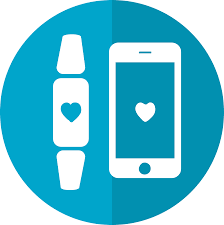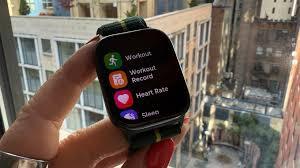Are Wearable Fitness Trackers Worth It?
You see them everywhere. Slim bands on wrists, tracking every step, every heartbeat, and maybe even sleep. Some glow softly in the dark. Others buzz with gentle reminders: “Time to stand up,” “You’ve been inactive,” or “Let’s move.” Wearable fitness trackers have become a kind of quiet companion for millions.

The Hype
First off, these trackers promise a lot. They claim to help people stay active, track sleep, count steps, measure heart rate, and even manage stress. On paper, it sounds ideal. Who wouldn’t want a personal coach on their wrist?
Many people, like Iris from Arlington, Texas, use trackers as motivation. She works from home, sits at a desk all day analyzing data, and writes for fun in the evenings. It’s easy to forget to move. With a tracker, she gets reminders to stretch, walk Mickey (her dog), and take breathing breaks. For her, it’s like a gentle friend checking in.
That’s the best-case scenario.
The Reality Check
Trackers aren’t perfect. The technology behind them is improving, but it’s not flawless. Step counting? Fairly accurate. Heart rate? Good enough for general insight, but not something you’d want to use to diagnose anything serious. Sleep? That gets complicated. Most trackers measure sleep based on how much you move. But what if you’re lying still and awake? It might still count that as rest.
So you get estimates. Helpful sometimes. Misleading other times.
Then there’s the accuracy debate. Some brands are better than others, but even the high-end ones don’t deliver perfect data. They might overestimate calories burned or misunderstand your sleep patterns. Which brings us to the bigger question—what do people actually do with this data?
Motivation or Pressure?
For some, these trackers are powerful motivators. There’s something satisfying about closing your rings or hitting your step goal. It’s a little celebration in your day. A reason to walk a bit more, to take the stairs instead of the elevator.
But not everyone feels that way.
If you’re someone who already struggles with self-judgment or anxiety, constant reminders and missed goals can feel overwhelming. Like Iris—someone who often worries about how others see her and wants to feel accepted. For people like her, falling short of a tracker’s goals might not be a small thing. It can eat away at you. That’s where the line between encouragement and stress starts to blur.
The Financial Side
Money matters too. A basic tracker might cost under $100, but if you’re looking at one with GPS, heart rate tracking, advanced sleep analysis, and other features, you’re easily spending over $200. Then there are subscriptions—yes, some trackers now charge monthly fees to access deeper stats.
Add it up and you’re not just spending money once. It becomes a recurring cost, and that’s something to think about.
What It Gives You (That’s Not Data)
Trackers aren’t only about numbers. For a lot of people, they provide awareness. You notice how little you move during workdays. You become more intentional about walking, stretching, breathing. Over time, that can change how you feel.
Sometimes, they even catch signs of trouble. Unusual heart rate? Sudden drop in sleep quality? They might be early red flags—not perfect, but enough to nudge someone toward getting help.
But maybe the most valuable thing is that sense of small wins. You walked 5,000 steps. You remembered to drink water. You slowed your breathing. In a world where everything feels fast and heavy, these small wins matter.
Are They Worth It?
Depends on who you are.
If you like structure and feedback, and you want a little push to stay active or aware of your health—yes, they can be helpful.
If numbers stress you out or you’re prone to obsess over details, maybe skip it. There are other ways to care for your health that don’t involve constant tracking. Walking your dog, taking quiet breaks, keeping a sleep journal. It doesn’t have to be tech-based.
For Iris, the tracker isn’t a miracle device. It’s just a small part of her effort to stay balanced. Her philosophy? Keep to the middle ground. Do enough, but don’t overdo. The tracker reminds her, gently, to keep moving, keep resting, and not fall into extremes.
That, right there, is the best these devices can offer—not control, not transformation, just quiet, consistent support.




